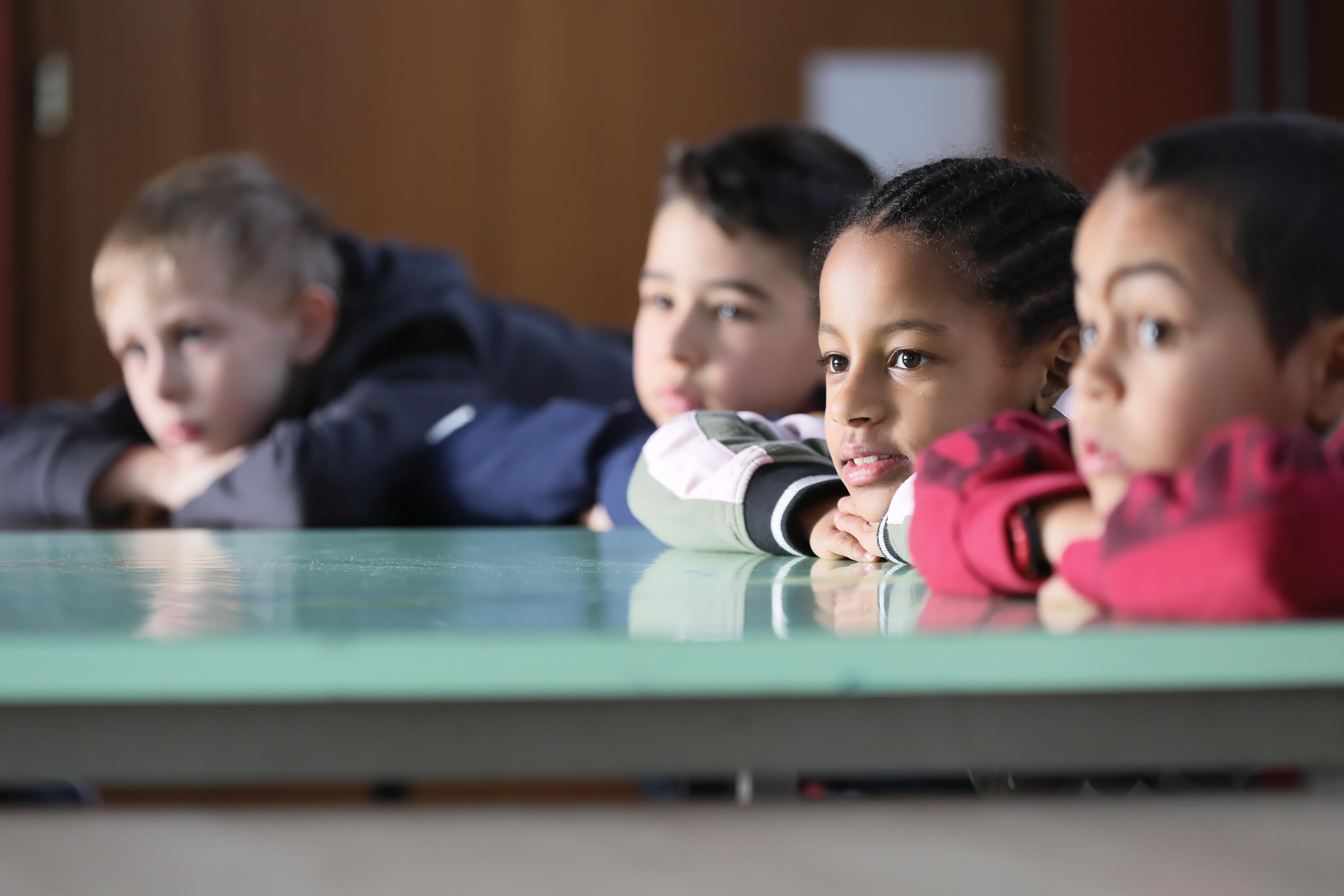Working to ensure gender equality in the classroom

Anna Elisabeth Pontais visited a class from the Ecole du Lignon. © Alain Herzog/2019 EPFL
To mark the International Day of Women and Girls in Science last week, EPFL joined an initiative set up by CERN for schools in Geneva.
The high-rise buildings surrounding the Ecole du Lignon in Vernier, on the outskirts of Geneva, may be austere, but they do nothing to dent the enthusiasm of the kids in Vjosa Berisha’s classroom. These eight- and nine-year-olds have so many questions about EPFL, which for them is a mysterious and intriguing place: “How do you go on field trips if there are 150 students in a class?” “Do all grown-ups have to go to college?”
Luckily, Anna Elisabeth Pontais – an architecture student at EPFL – is there to provide the answers. Anna Elisabeth is in the last year of her Master’s degree and visited the Geneva school to mark the International Day of Women and Girls in Science on 11 February. This year, EPFL teamed up with CERN and the University of Geneva's Scienscope in visiting schools around Geneva as part of an initiative created by CERN two years ago. The aim is to get women in science to share their day-to-day experiences with students between the ages of 7 and 15 and serve as role models for budding young female scientists. “Women are still underrepresented in the scientific world, and we have to work to get rid of sexist stereotypes from an early age,” says Marie Bouvier, who’s in charge of local relations at CERN.
During the week of 11 to 15 February, 151 classes comprising more than 3,000 schoolkids were visited as part of the initiative. From EPFL, an all-female team of five students, two doctoral students and one staff member talked to a total of 35 classes. “It's been a great experience – I really loved it,” says Constance Crouïgneau, a Master’s student in mechanical engineering. “I spoke with classes of eight- to nine-year-olds and ten- to eleven-year-olds, and they were really into it. I talked to them about EPFL and was able to kindle their interest in science. It was also an opportunity for them to ask loads of ‘scientific’ questions about the world around them. I ended up telling them about artificial intelligence, smart cars, and things like that. You need good general scientific knowledge to keep up.”
Stereotypes that start in childhood
Anna Elisabeth Pontais, who spoke about EPFL and architecture models to five classes of kids ranging from 8 to 12 years of age, experienced much the same thing: “They're very inquisitive. It’s great to do things like this to try and erase the gender differences, especially since girls often feel that they’re not as good at science subjects.” And the stereotypes are there from a very early age, as Vjosa Berisha knows all too well. She tries to conquer them every day, which is why she signed her class up for this initiative. “I was cleaning some furniture when one of my male students made the comment that it was a normal thing for me to do because I was a woman,” she recalls. “Even when they’re eight or nine years old, these ideas are already well-engrained. It’s important to show them that there is no job that can be done only by men or only by women.”
When Vjosa Berisha’s pupils watched EPFL's introductory video, they were as enthralled as chemists glued to their test tubes. And both the boys and the girls had questions about the robots they glimpsed in the film, and especially about how EPFL is organized. Anna Elisabeth spoke to the children about life as an architecture student, crafting models and taking exams. “How do you manage to have so many answers to so many questions?” asks one of the kids. Anna Elisabeth smiles and admits that she by no means knows everything. Then more hands keep going up until the bell rings – these children have a thirst for knowledge worthy of the greatest scientific mind.










